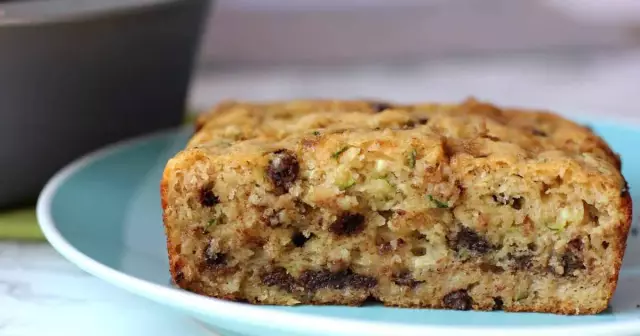- Author Rachel Wainwright wainwright@abchealthonline.com.
- Public 2023-12-15 07:39.
- Last modified 2025-11-02 20:14.
4 reasons to love zucchini
Zucchini is a plant of the pumpkin family. The composition of the pulp of its fruits includes useful fiber, vitamins, minerals and trace elements necessary for the normal functioning of the human body. Today this vegetable occupies a worthy place in the gardens of many summer residents. Let's get acquainted with the useful properties, as well as methods of storing and using zucchini.

Source: depositphotos.com
Strengthening immunity
Only 100 g of zucchini pulp can provide a person with 30% of the daily intake of vitamin C. In addition, the product contains a fairly large amount of vitamins A and K, riboflavin, folic and pantothenic acids. It is the named substances, as well as the lutein and zeaxanthin that are part of it, that make zucchini a product capable of supporting the high activity of the body's defenses.
To preserve the maximum amount of vitamins, the vegetable is recommended to be consumed raw. At the stage of milky ripeness, the zucchini fruit has a pleasant, slightly herbaceous taste and a delicate unobtrusive aroma. Its pulp, chopped on a grater and slightly salted, is good to add to vegetable salads seasoned with vegetable oil and lemon juice.
Benefits for the eyes
Zucchini pulp is considered a valuable source of beta-carotene, which has a beneficial effect on eye health. Eating meals from this vegetable daily increases visual acuity. The product is also rich in other antioxidants that heal the body and reduce the risk of developing glaucoma and cataracts.
Fighting excess weight
The calorie content of the zucchini pulp is very low (only 17 kcal per 100 g), which is why it is perfect for a diet. Stewed and baked, it retains most of the beneficial properties and goes well with lean meats, poultry and seafood recommended for those who wish to lose weight.
It is good to include zucchini dishes in the diet of patients with diabetes mellitus: the pulp of the vegetable contains pectin, which helps maintain an optimal concentration of glucose in the blood.
Improving vascular health
Zucchini fruits are rich in potassium, which is necessary for the normal functioning of the cardiovascular system. It has been proven that people who often consume zucchini are less likely to suffer from hypertension and heart disease.
The vegetable contains folic acid, which neutralizes homocysteine, the excess of which is bad for the heart muscle. Regular consumption of zucchini helps to improve blood composition and strengthen the walls of blood vessels.
Usually, zucchini is harvested in the form of pickles and vegetable mixtures. These are not the healthiest dishes: they contain a lot of salt, vinegar and vegetable oil. But this is not at all necessary. Zucchini hibernate well at room temperature. For storage, you need to choose well-ripened medium-sized fruits with an intact skin and rather long (at least 10 cm) remnants of pedicels. Zucchini are placed in a basket or box with the pedicels upward so that they do not squeeze each other. The container is placed in a room, away from radiators. In this form, zucchini can be stored throughout the winter season without losing its beneficial properties. In this case, their taste even improves.
Fruits of milk ripeness can be frozen by first cutting them into circles or cubes. This product can be easily used without thawing for preparing a wide variety of dishes - soups, vegetable stews, side dishes, etc.
The use of zucchini has practically no contraindications. Only people with severe renal insufficiency (due to the high potassium content in the vegetable) should treat the dishes prepared from them with caution. Patients with gastritis and gastric ulcer are not recommended to eat raw zucchini. For everyone else, these wonderful vegetables can only benefit. Zucchini dishes can be included in the daily menu at any time of the year.
YouTube video related to the article:

Maria Kulkes Medical journalist About the author
Education: First Moscow State Medical University named after I. M. Sechenov, specialty "General Medicine".
Found a mistake in the text? Select it and press Ctrl + Enter.






